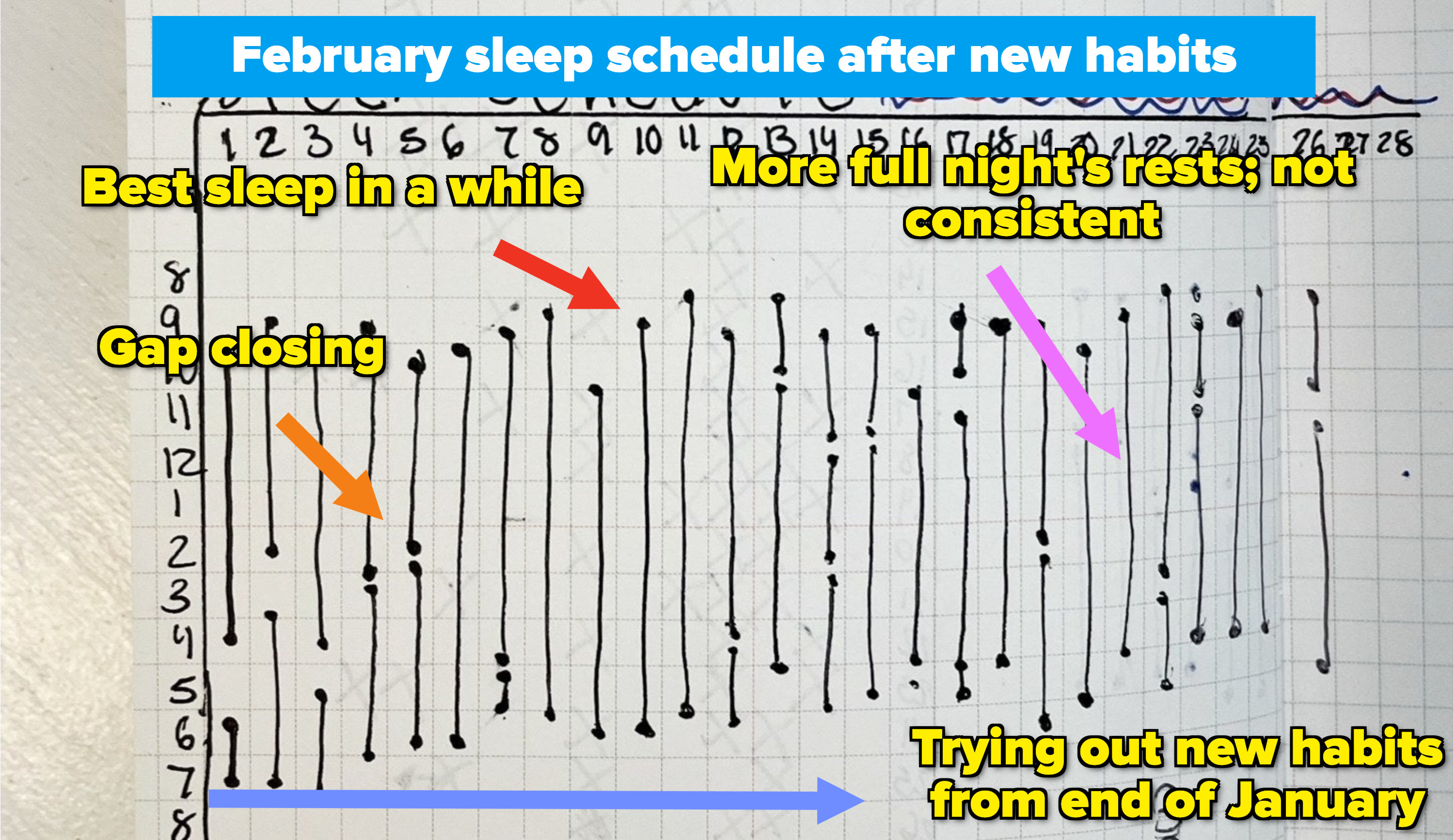Hello! My name is Raven, and I have a hard time sleeping throughout the night.
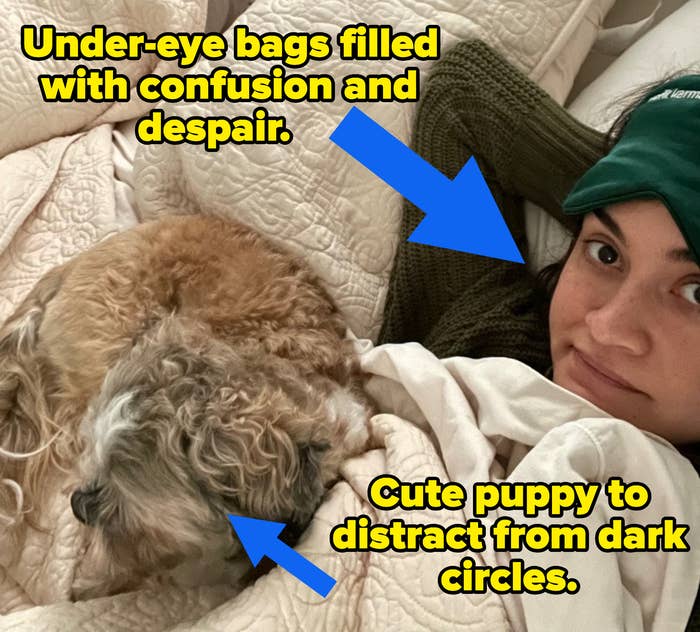
While this wasn't always the case in my life, my sleep schedule really changed last year during the COVID-19 pandemic, with me waking up at 3 a.m. and staying up for hours most nights. And I'm not the only one. According to a 2021 study that involved about 54,000 participants from 13 countries, it was determined that 40% of people from the general and healthcare populations have been affected too.
This sleep schedule was helpful because, for some reason, my body refuses to fully function with less than seven hours of sleep. While I know some people can — or have to — function on little sleep (hello, parents), it feels like my brain short-wires when I consistently get less than seven hours. You know, similar to when someone in a movie destroys a computer with a bat for a ~dramatic effect~.
I should also preface that I don't have any children, I have a roof over my head, and I don't live with chronic pain — so I completely understand that I'm talking about a "good night's rest" from a place of privilege. However, I do live with generalized anxiety, which also impacts my sleep from time to time TBH. (A clear mind with not ever overthinking everything in sight? I don't know her.) And like a lot of Americans, I experienced a heavy amount of burnout during COVID because of work.
After about a year of having disruptive sleep, I wanted to connect with a sleep expert to see exactly how I can fix this problem, why it might be happening in the first place, and why everyone's sleep schedules are kind of messed right now. So I reached out to Dr. Jade Wu, PhD and behavioral sleep medicine specialist.

And since a lot of people have been experiencing sleep issues as of late, I wanted to share some of the tips, advice, and habits Dr. Wu shared with me — so you, too, can incorporate the below tips into your life to see if they might help with sleep. (And spoiler: I'm happy to report that some habits did work for me — and resulted in some of the most deep and consistent sleep I've had in months.)
So without further ado, let's sleep talk — ahem — I mean talk sleep. Put on your comfiest pajamas, grab your favorite night cap (hot cocoa counts), and put on some white noise.
To begin my journey to better sleep, I wanted a clearer understanding of what was even considered "good-quality sleep," so Dr. Wu started off by explaining exactly that.
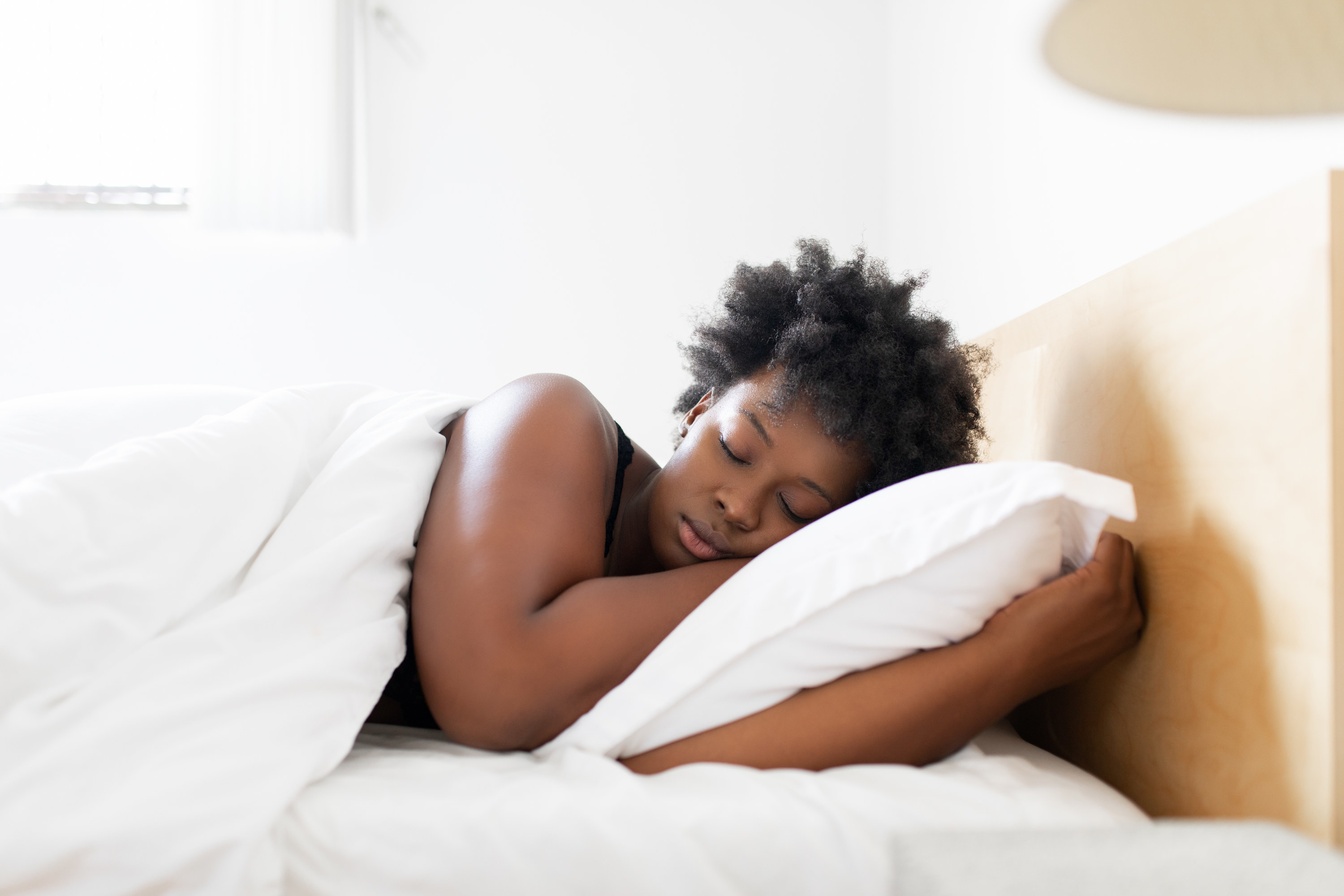
While I didn't find myself falling asleep during Zoom meetings, I was experiencing a huge dip in my energy levels, brain fog, lack of focus, and was even taking naps on a more regular basis during the weekends (which is very hard for me to do with my anxiety-ridden mind).
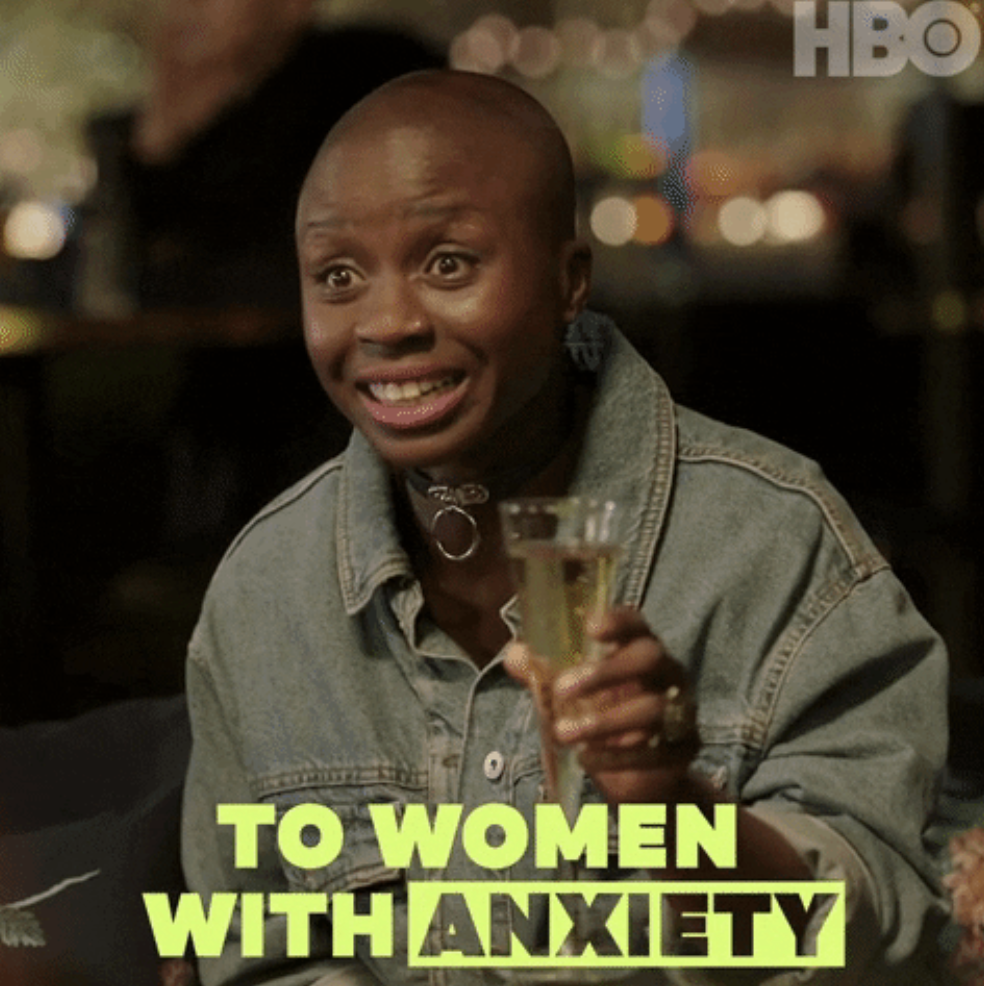
But even though these things meant my sleep quality might have been poor, I wanted to know why some people tend to wake up at 3 a.m. in the first place — and apparently, Dr. Wu said it's more biological and common than you think. (If you google this, around 6 million results pop up.)

Dr. Wu added: "Adenosine is the chemical that accumulates in the brain the more you're awake — and that accumulation of adenosine is what drives the first half of the night. By the middle of the night, it switches gears over to your circadian rhythm that drives the second half of the night, where you run low on adenosine — but it's still night."
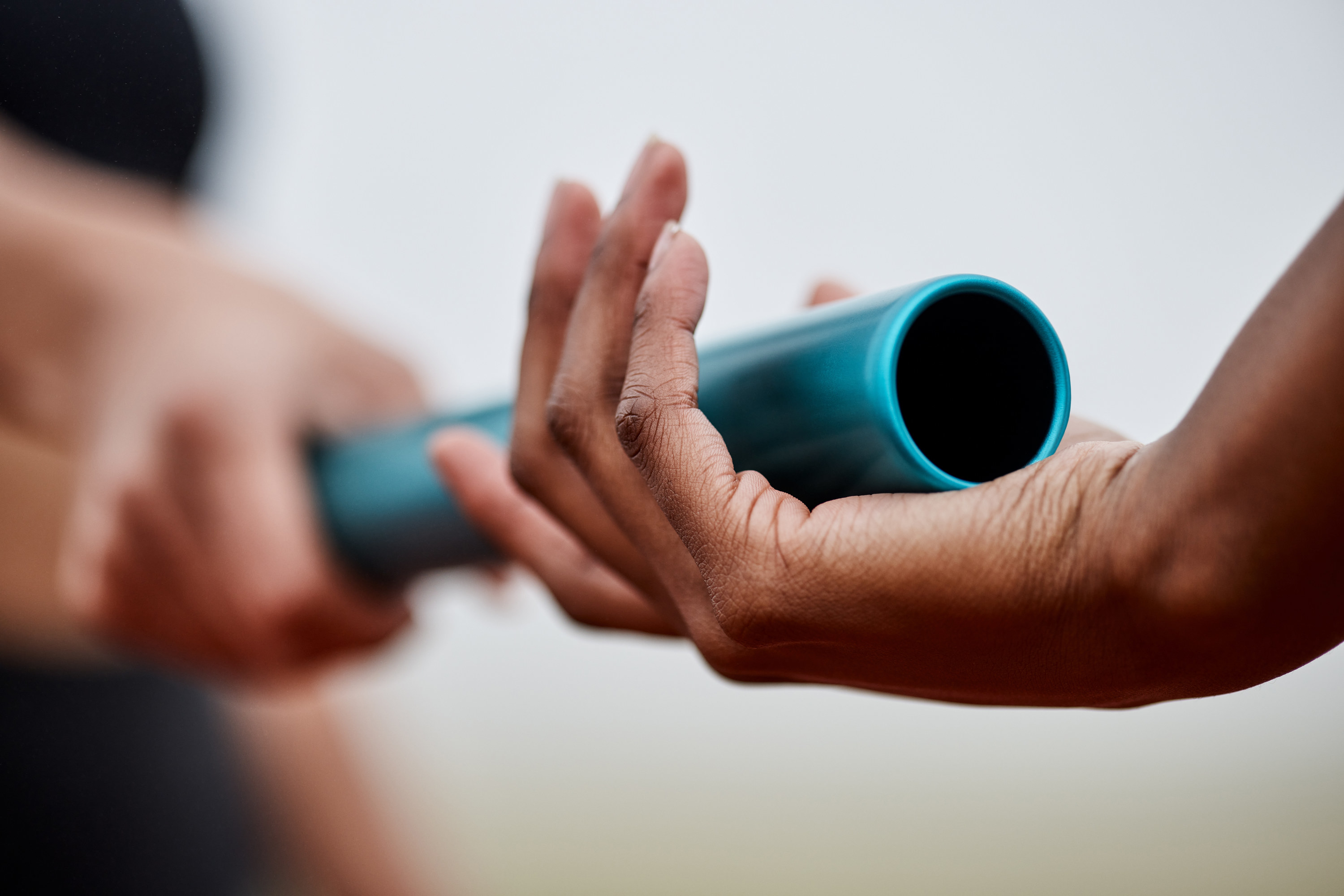
Even though this was great news to hear, my body wasn't happy with me waking up every single night (especially when I didn't have — honestly, want — to socialize with anyone or do chores). And when I inquired about this to Dr. Wu, she explained how the nuances of the pandemic might be the cause of some sleep issues.
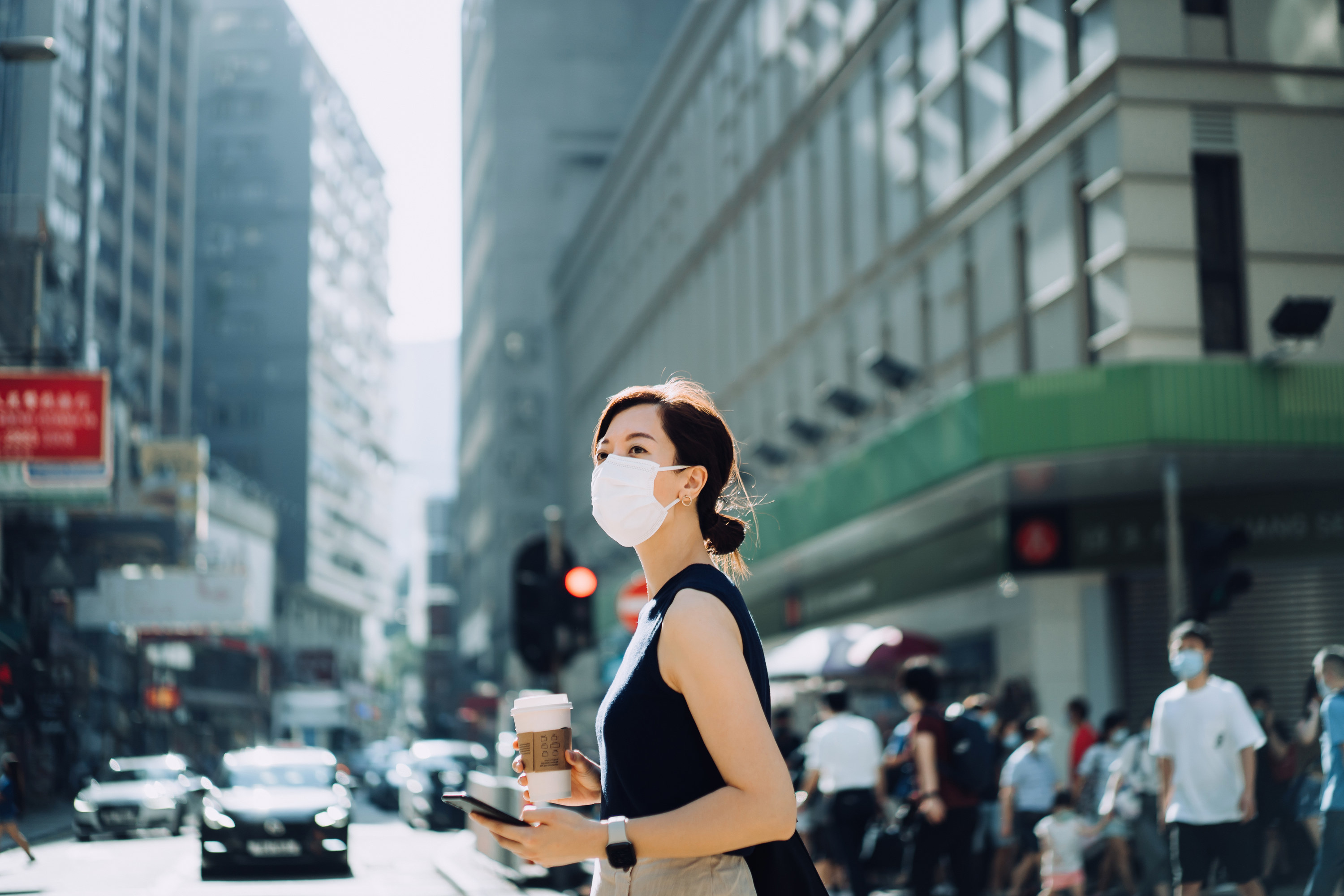
And that's when everything clicked. Like a lot of people, the majority of my time in 2021 and 2022 was spent indoors with little to no time outdoors. The same was true with face-to-face interactions other than with my fiancé, or the occasional outdoor family/friend meet-up — and the latter only occurred when I received the vaccine in April 2021.
This new "lifestyle" most likely meant I wasn't getting enough light, exercise, and social interactions. Plus, with everything else that was going on in the world, I was stressed out of my mind.
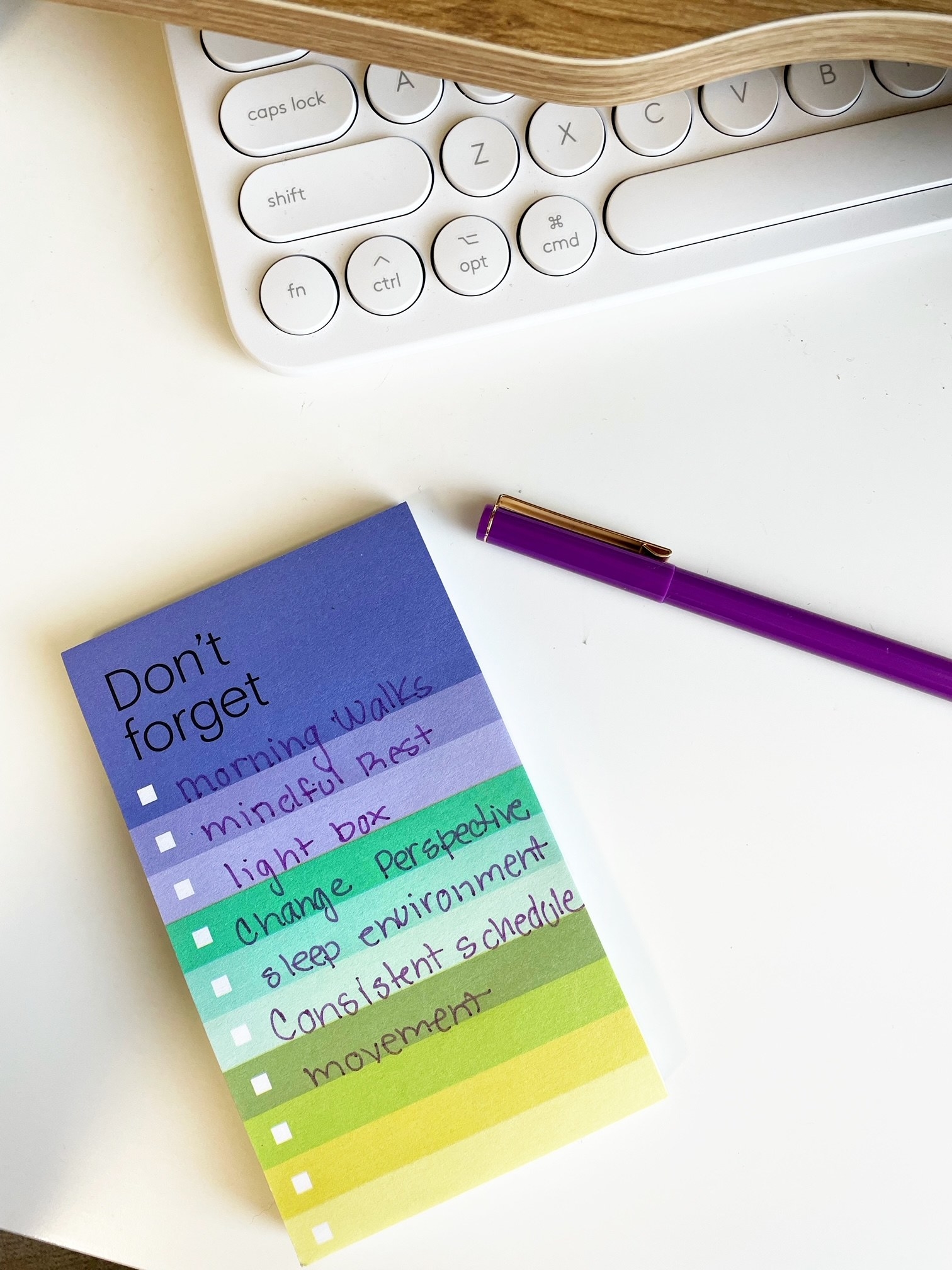
And Dr. Wu said it could take a couple of weeks to truly see changes in my sleep schedule if I'm doing the majority of these things. I decided to slowly add each of these tips into my daily routine for the span of about two weeks to see if I would notice a difference in my sleep (spoiler — I did!).
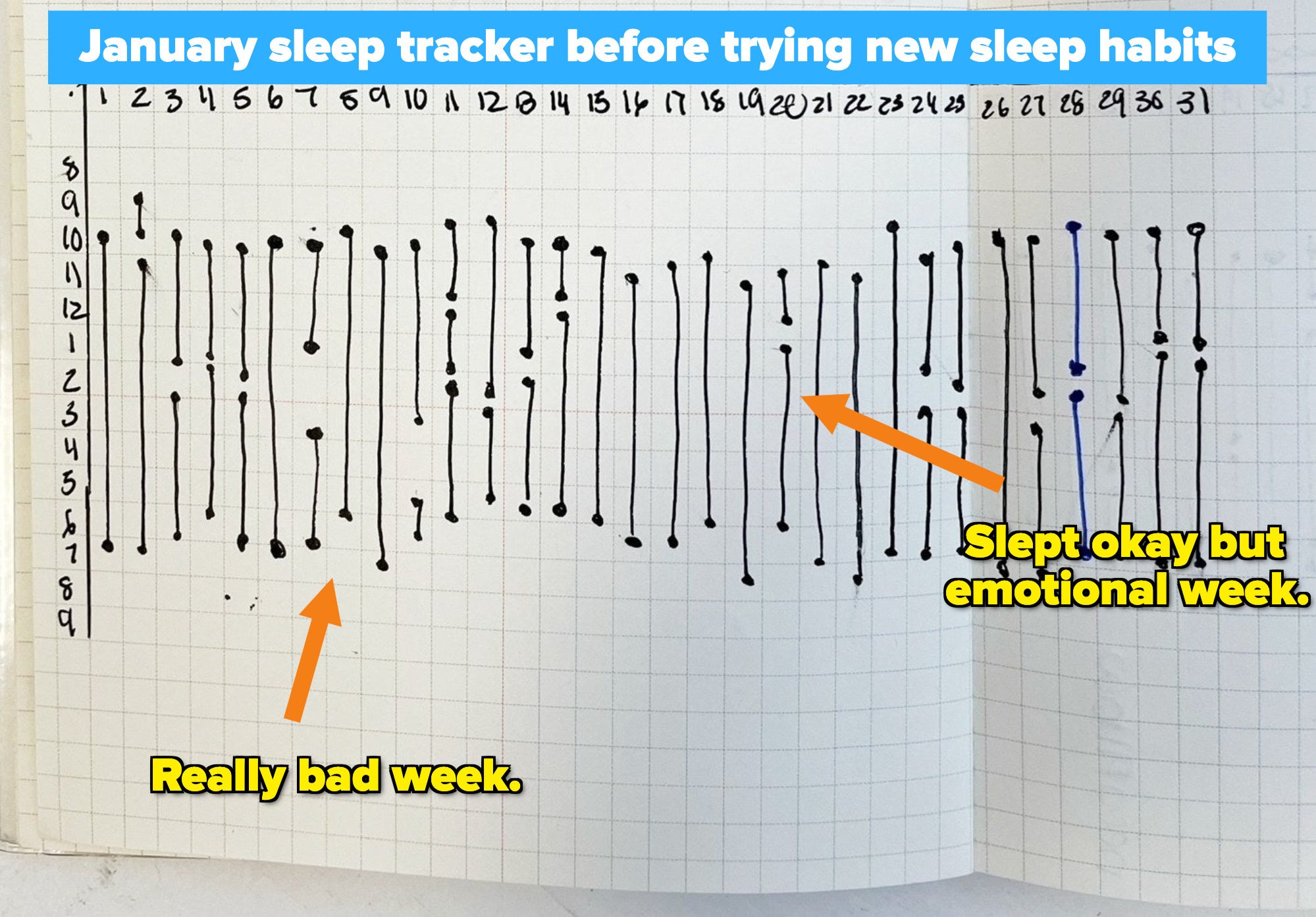
Habit #1: Changing my perspective about waking up in the middle of the night.
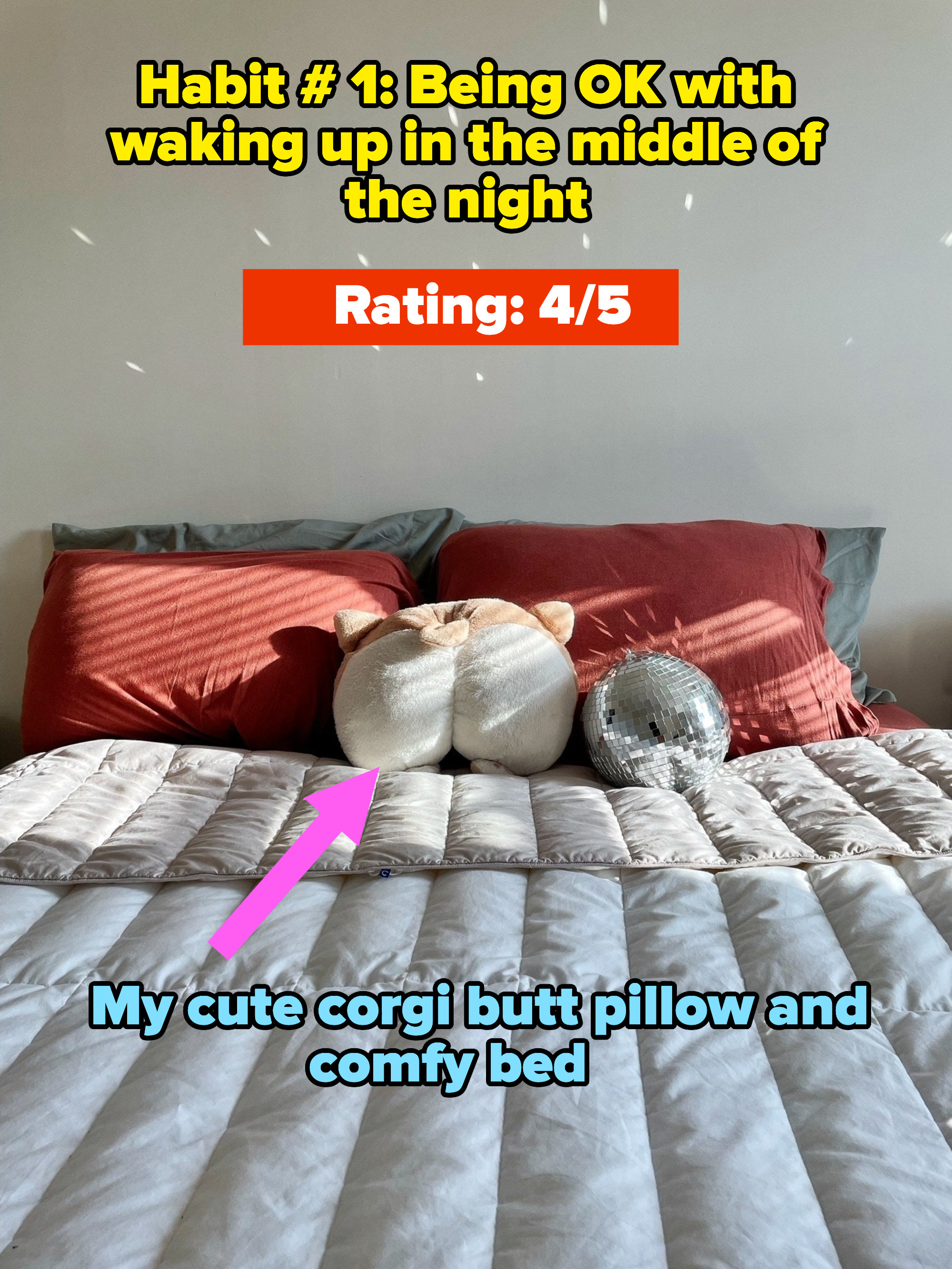
So for the first few nights of waking up at 3 a.m., I tried to convert my frustrated thoughts into happy thoughts. (Basically, I was trying to trick my mind into believing that there was absolutely nothing wrong with waking up in the middle of the night.) To be honest, it felt like complete BS when I first started it — but somehow, it ended up working after a few days.
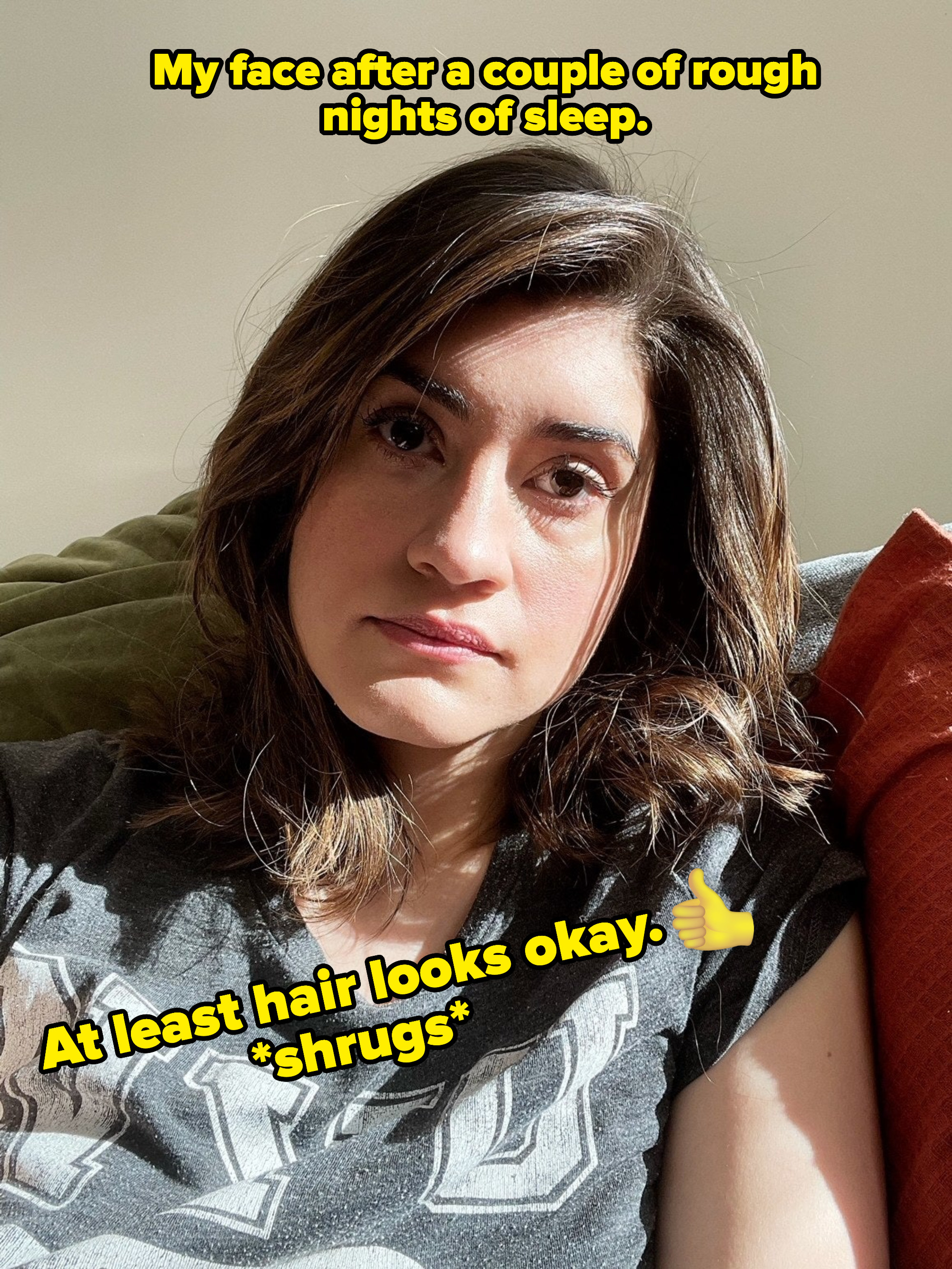
Also, for extra good measure, I placed my phone across the room on my beauty stand so I didn't reach for it in the middle of the night to scroll on social media.
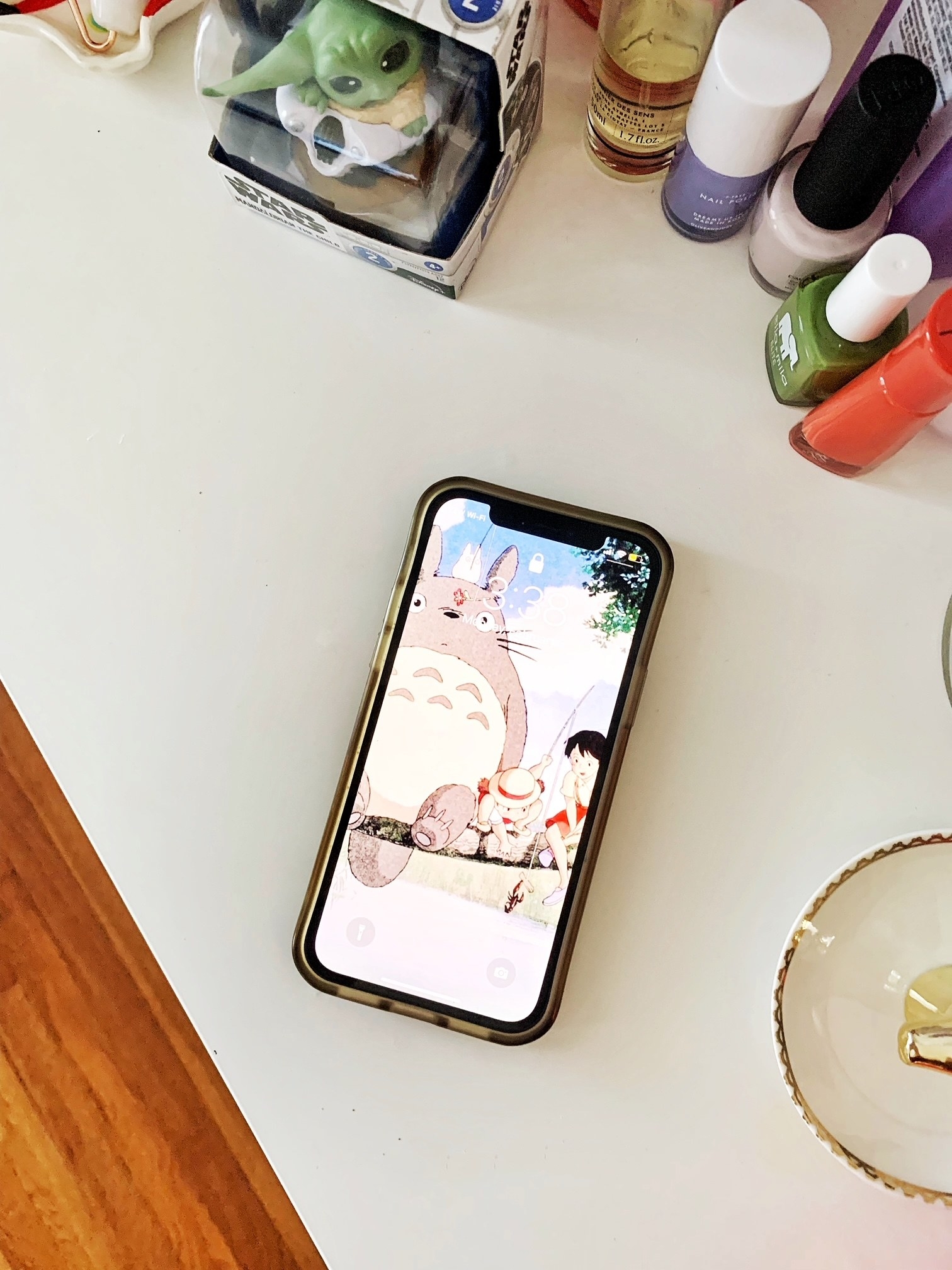
Habit #2: Taking walks during the day.
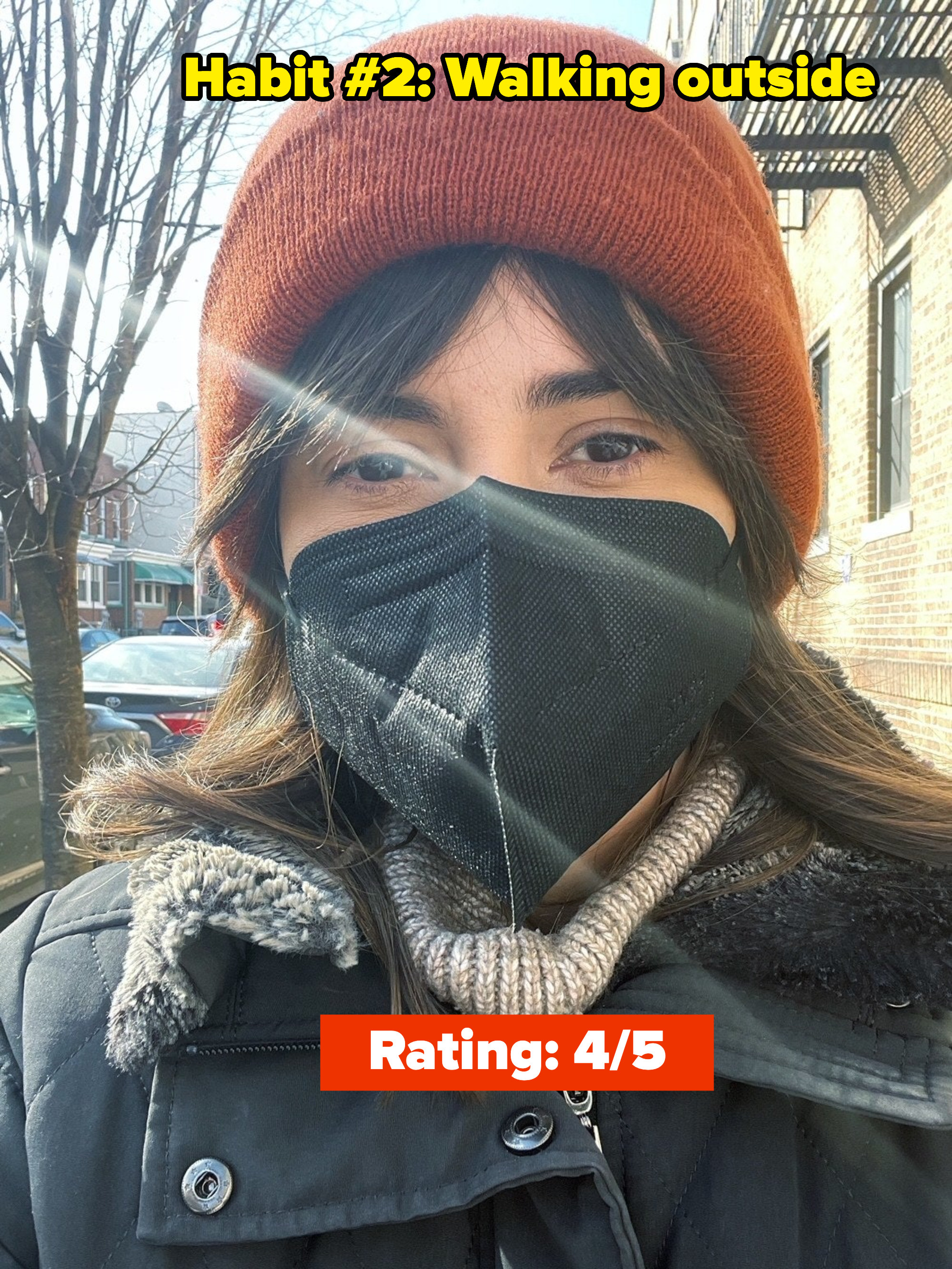
As for me, I really enjoyed adding this tip into my routine. A few times during the week, I would walk in the morning to grab a matcha and even made sure to hang outside a bit to make sure I was absorbing the sun's rays and vitamin D (which can also help with sleep regulation). After a few times doing this, I felt happier, calmer, and started to notice a change in my sleep. Prior to this, I would take walks around my neighborhood's park, but I didn't do them as often as I should, especially during the wintertime.
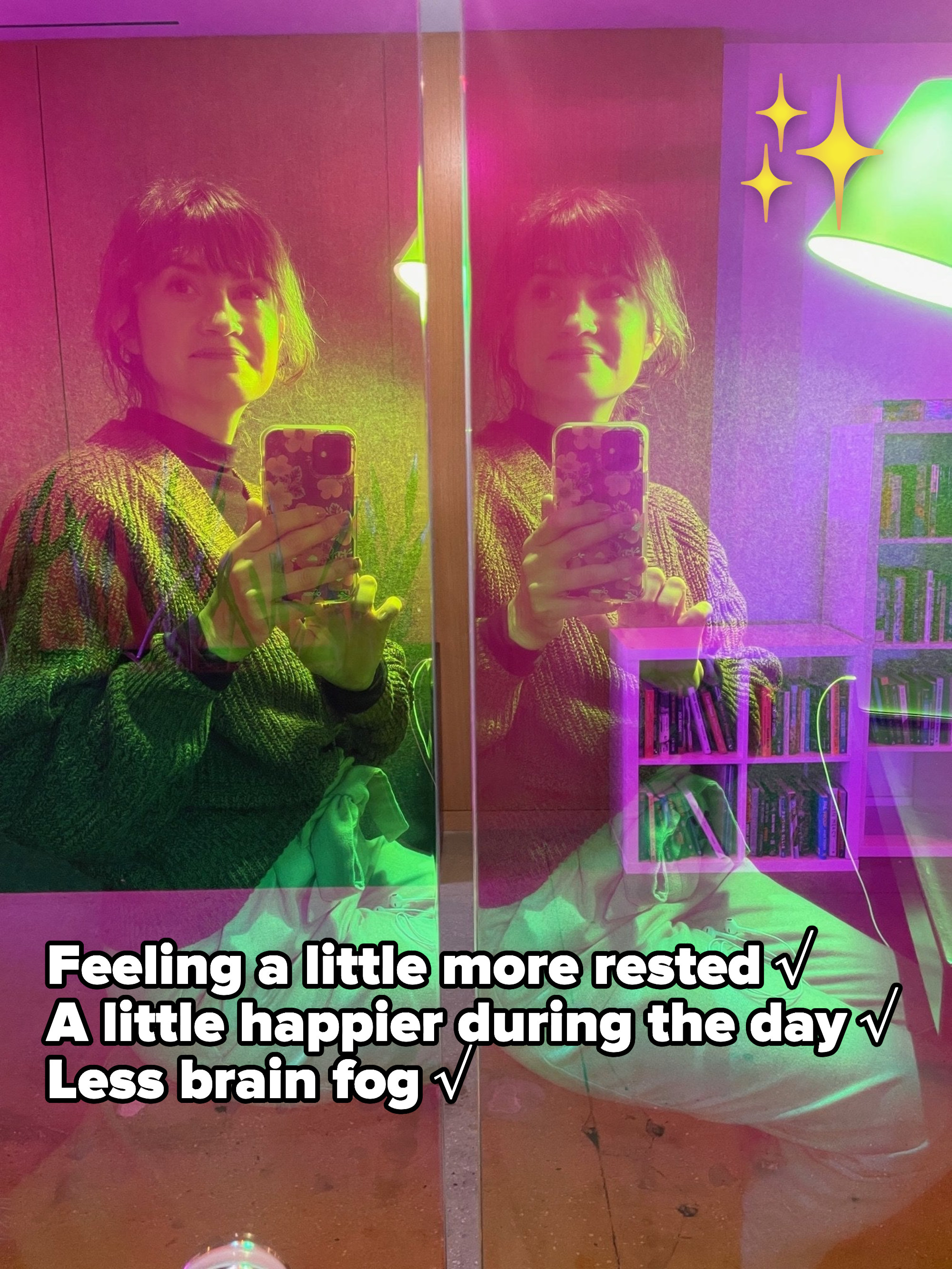
And this is especially true if you're on your phone all day too. "When you're on your iPad or watching stuff on your phone late at night, the curve is flattened between day versus night," Dr. Wu said. "Your brain can't tell the difference between day and night that well, and it gets confused. You're then unable to sleep very well at night, which won't make you feel good during the day."
Habit #3: Use a light box.
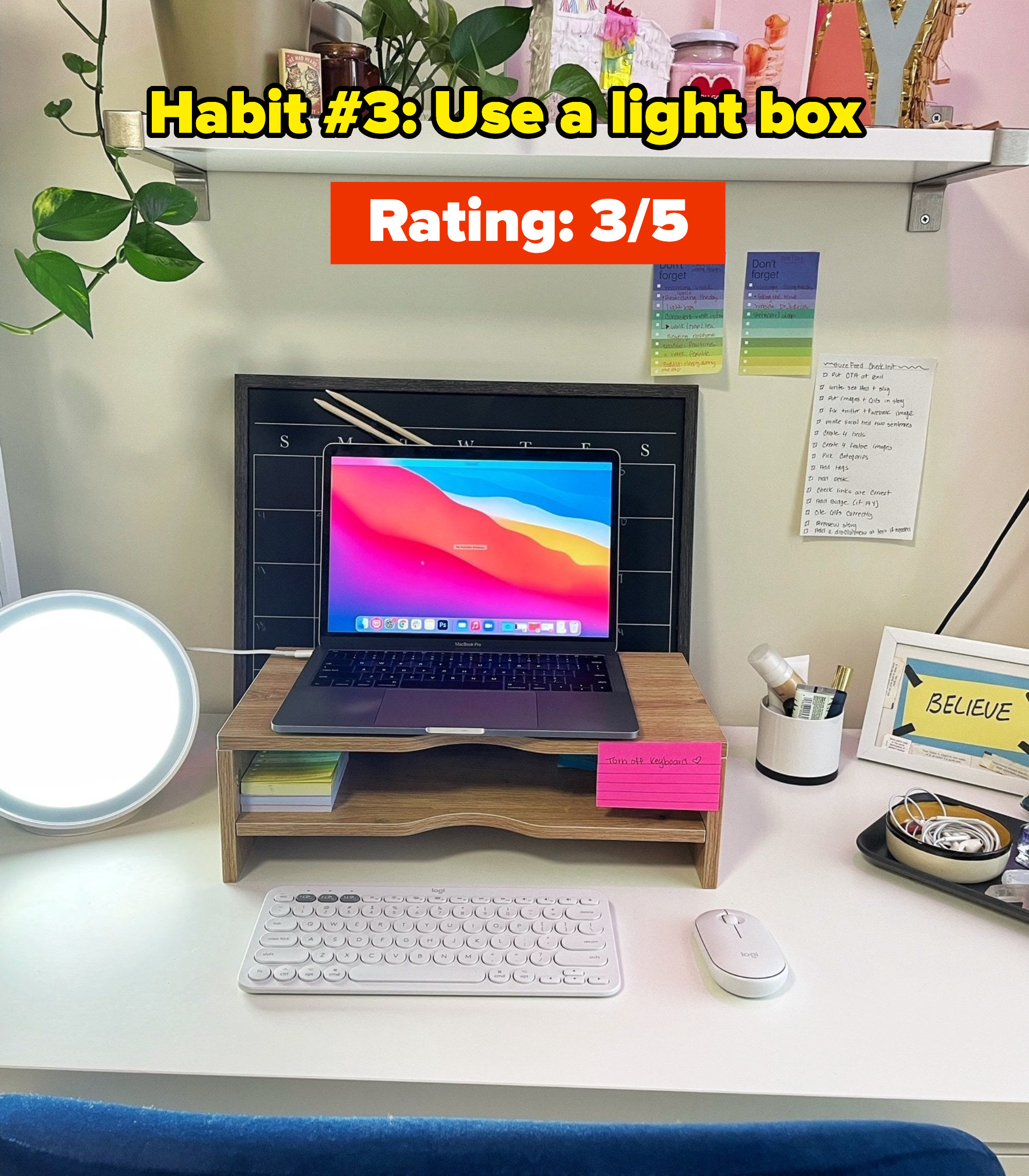
So after using this a few times during the week, I felt slightly more alert in the morning, which probably helped correct my circadian rhythm issues. (But could it also have been a placebo effect? Sure!) Either way, I appreciated this little device for what it was able to provide to my sleep schedule, because this is when I started noticing the gap to my 3 a.m. wake-up times closing in.
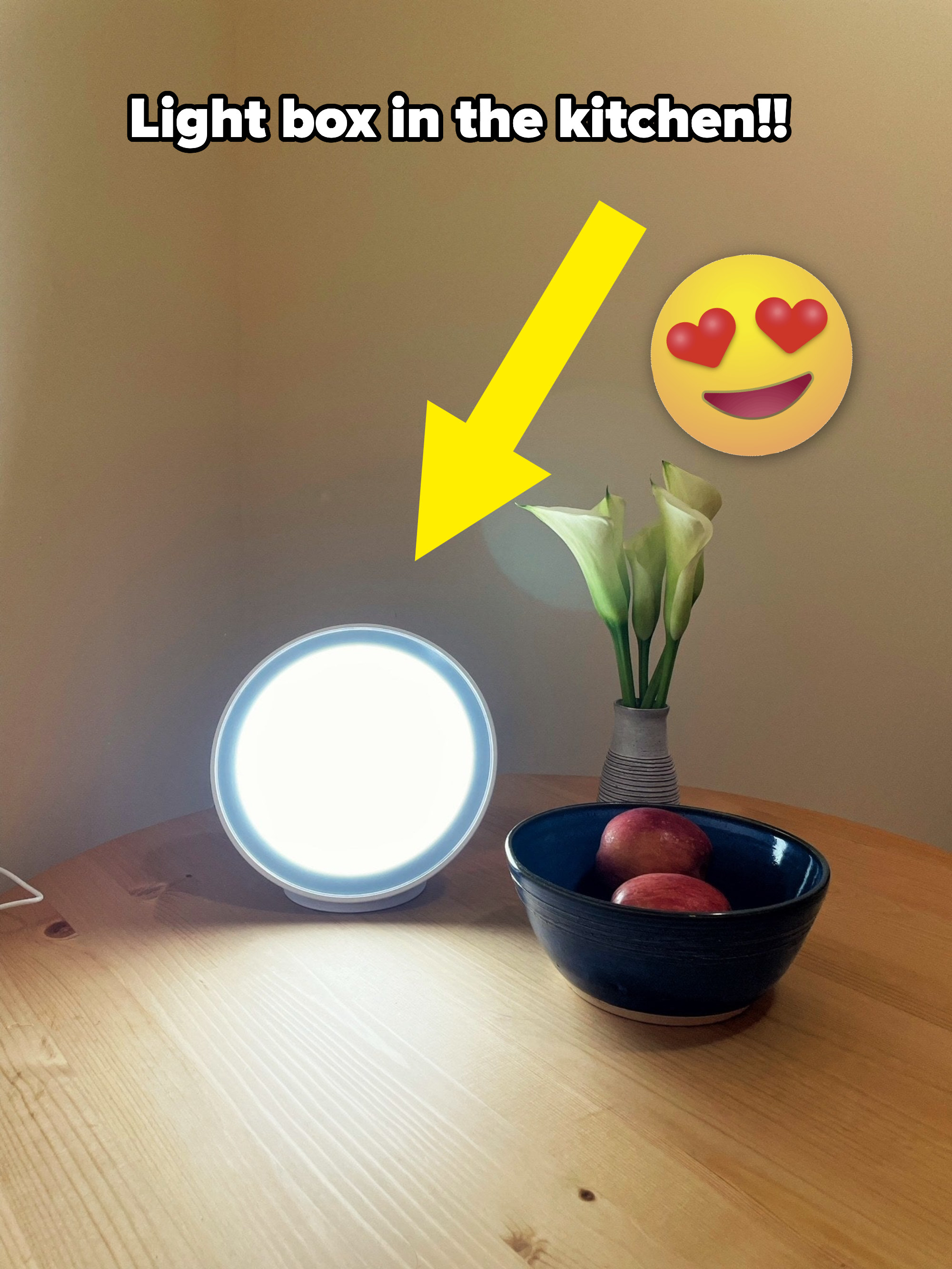
Habit #4: Get deep (screen-free!) rest throughout the day.
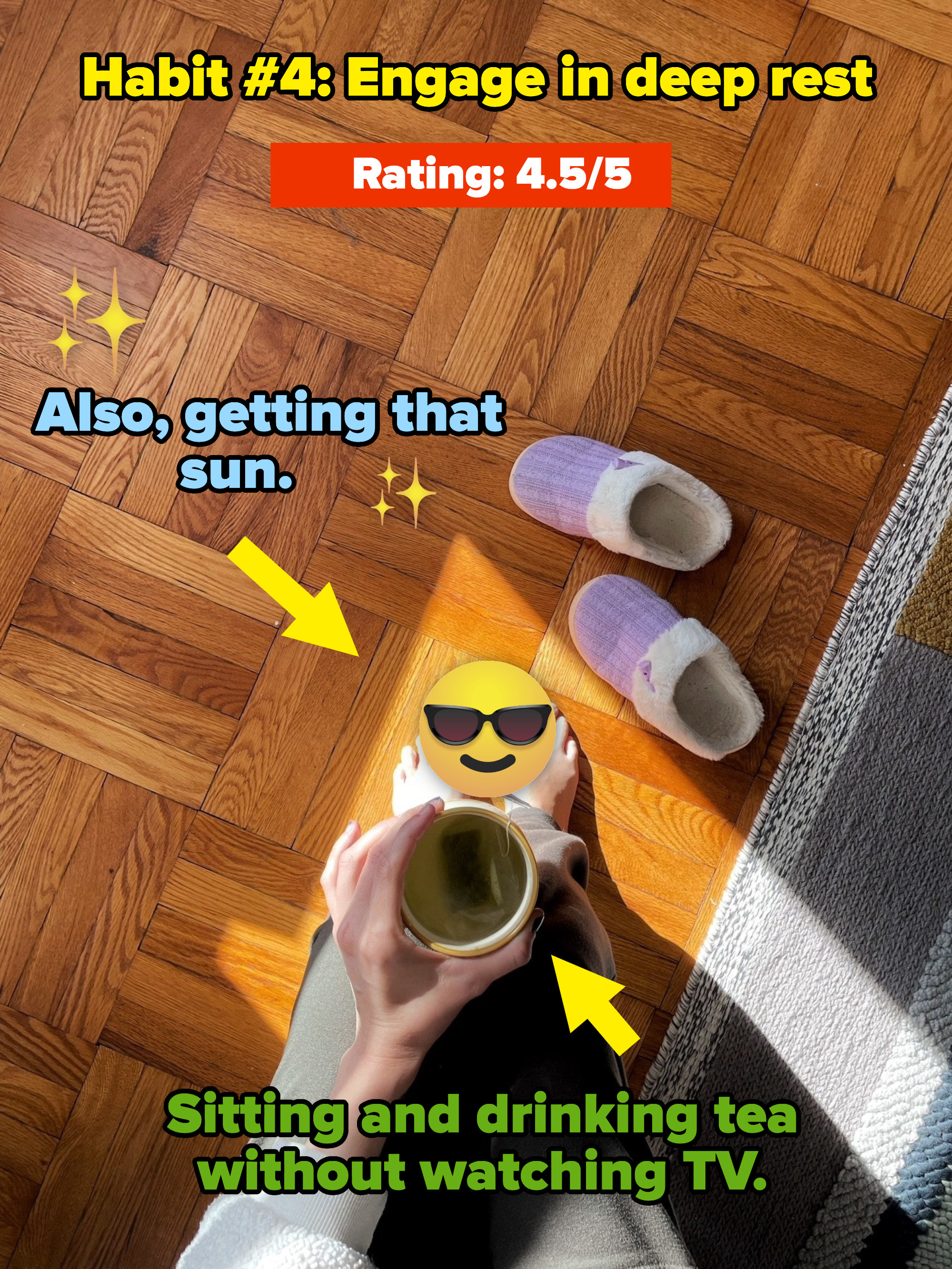
And without any surprise, this includes being on social media all day, even on the weekends. Because when you're "distracted" or busy all day, Dr. Wu said then the thoughts that are swirling around in your head are pent up there until you go to sleep, which is when they can finally be released. "When you do wake up during the night, it's more likely those thoughts will be like, Oh, now it's our turn. I've been waiting patiently all day to get your attention. But you've been busy — and now there's nothing to distract you." (To say I felt attacked by this was an understatement.)
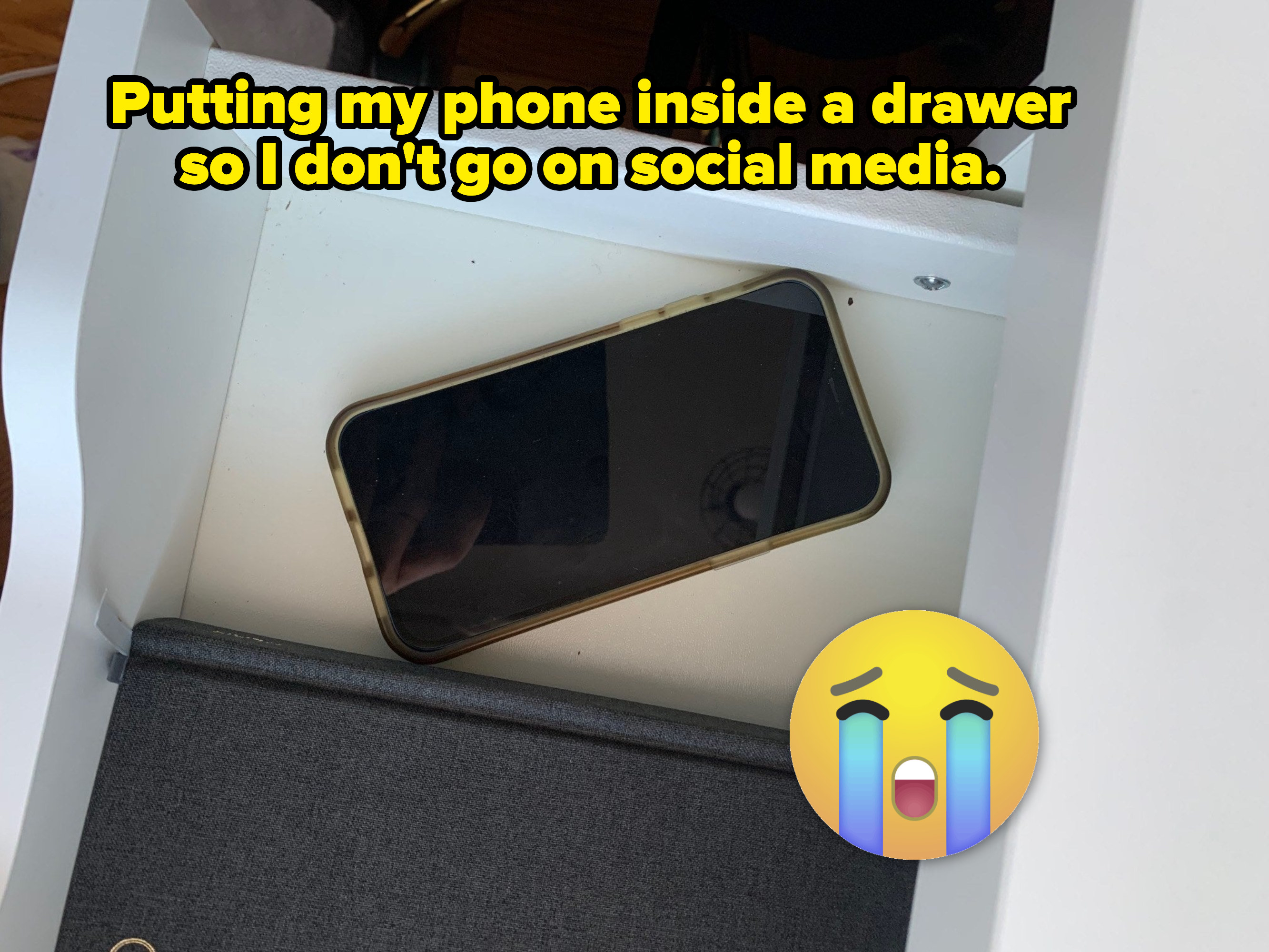
The good news is this is something I've been actively trying to stop — because hustle culture, especially during the weekends, is not worth your mental health. So Dr. Wu provided some ways to engage in deep rest. And even if you can only do these things for 30 minutes a day, that's better than nothing.
• Taking a very brief nap, like a 20-minute nap, if you feel sleepy.
• Drawing or another similar hobby.
• Having a hot beverage and not scrolling social media.
• Reading.
• Basically anything that doesn't involve a screen and multitasking.
So for some nights after work and most weekends, I tried to engage in some variation of deep rest as much as possible, whether it was taking long baths, reading a book, taking a nap (and not feeling guilty about it), or sitting in the sun while I drank a cup of tea.
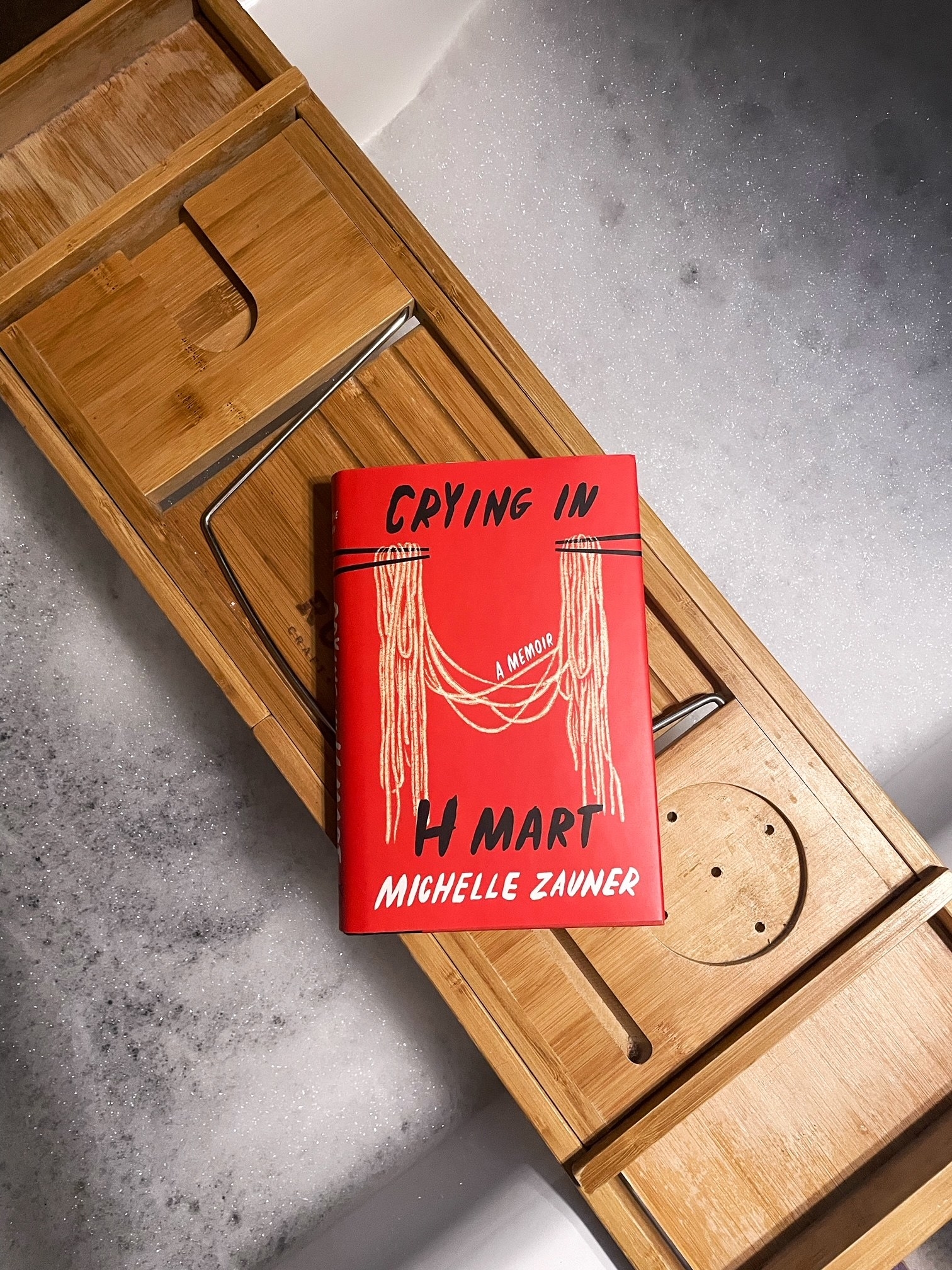
Habit #5: Improve your sleep environment.
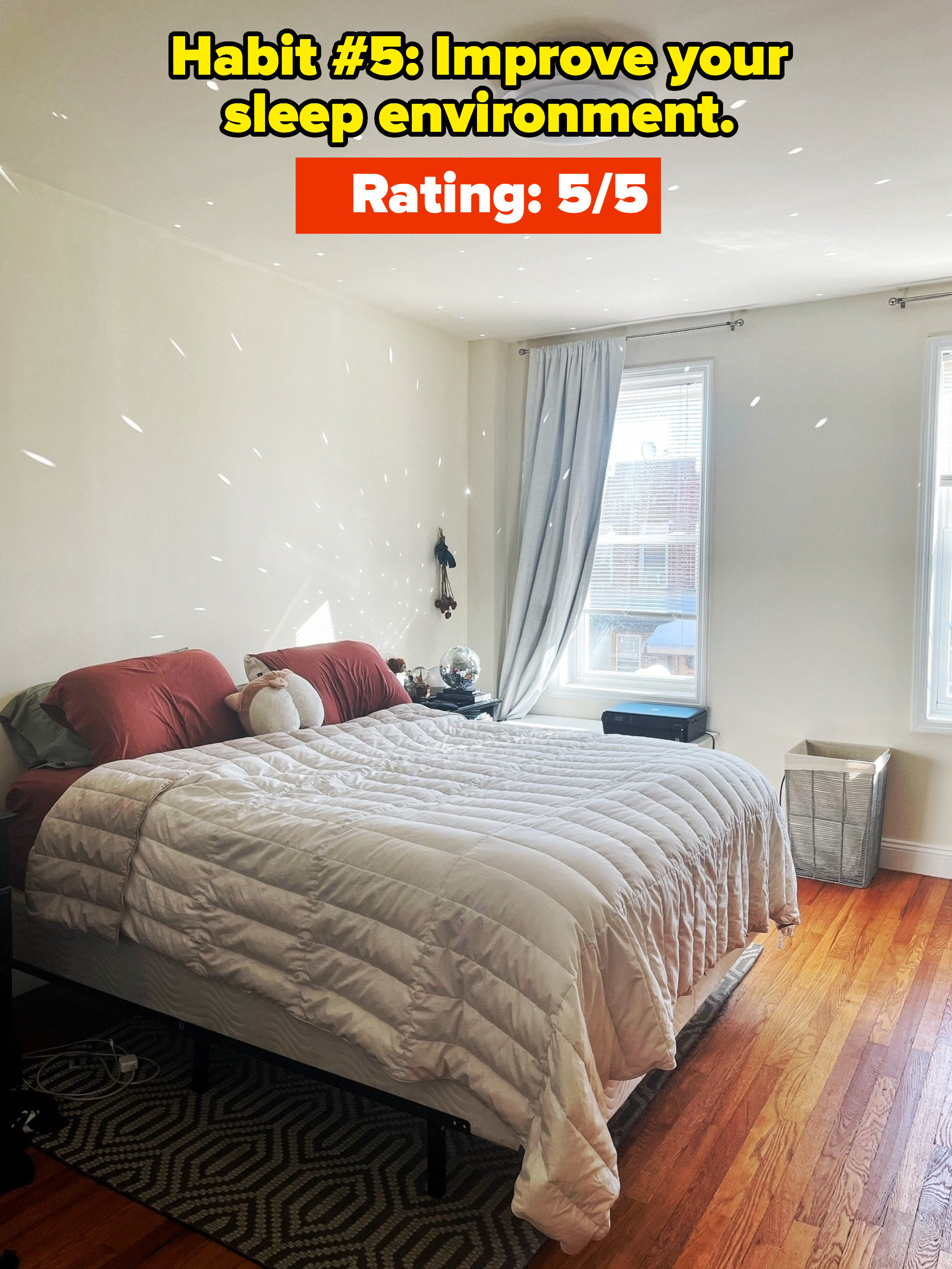
However, trying to figure out exactly what was affecting my slumber would take some patience and detective work. "If you feel like you didn't sleep, it can be hard to tell if it's because your dog was bothering you, for example, or if it was something else." But she explained if you've pretty much crossed those sleep hygiene things off the list one by one, you can slowly figure it out. "For instance, if you're not waking up in a pool of sweat, then it's probably not too hot. Or maybe you tried having your dog sleep in his own bed on the floor, and you're still not sleeping — well, then you've eliminated that," she said.
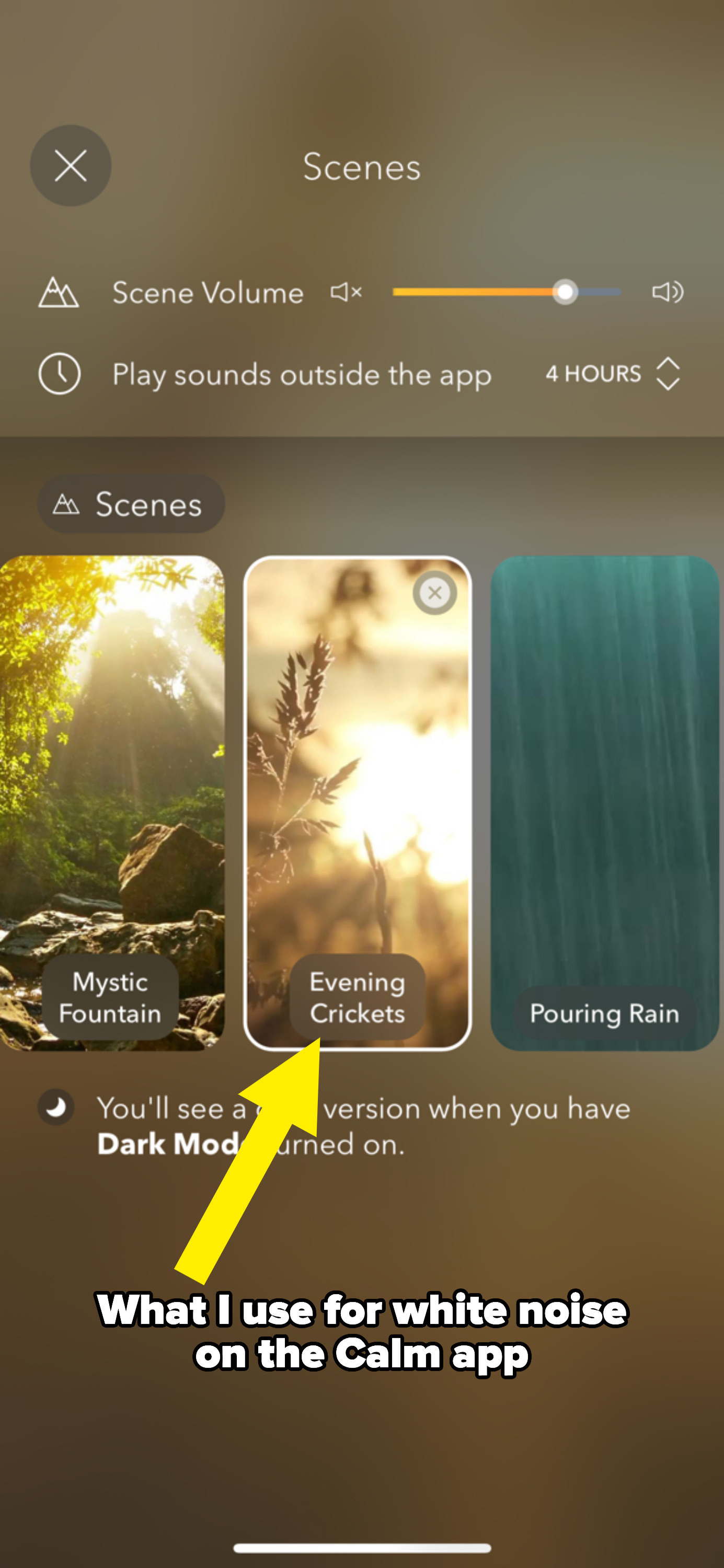
So I adjusted everything I could to create the ideal sleeping environment for the following week. I opened one of my bedroom's windows just enough to let the right amount of cool air in. I also opened one of the kitchen windows that was across the apartment so we could get a nice cross breeze.
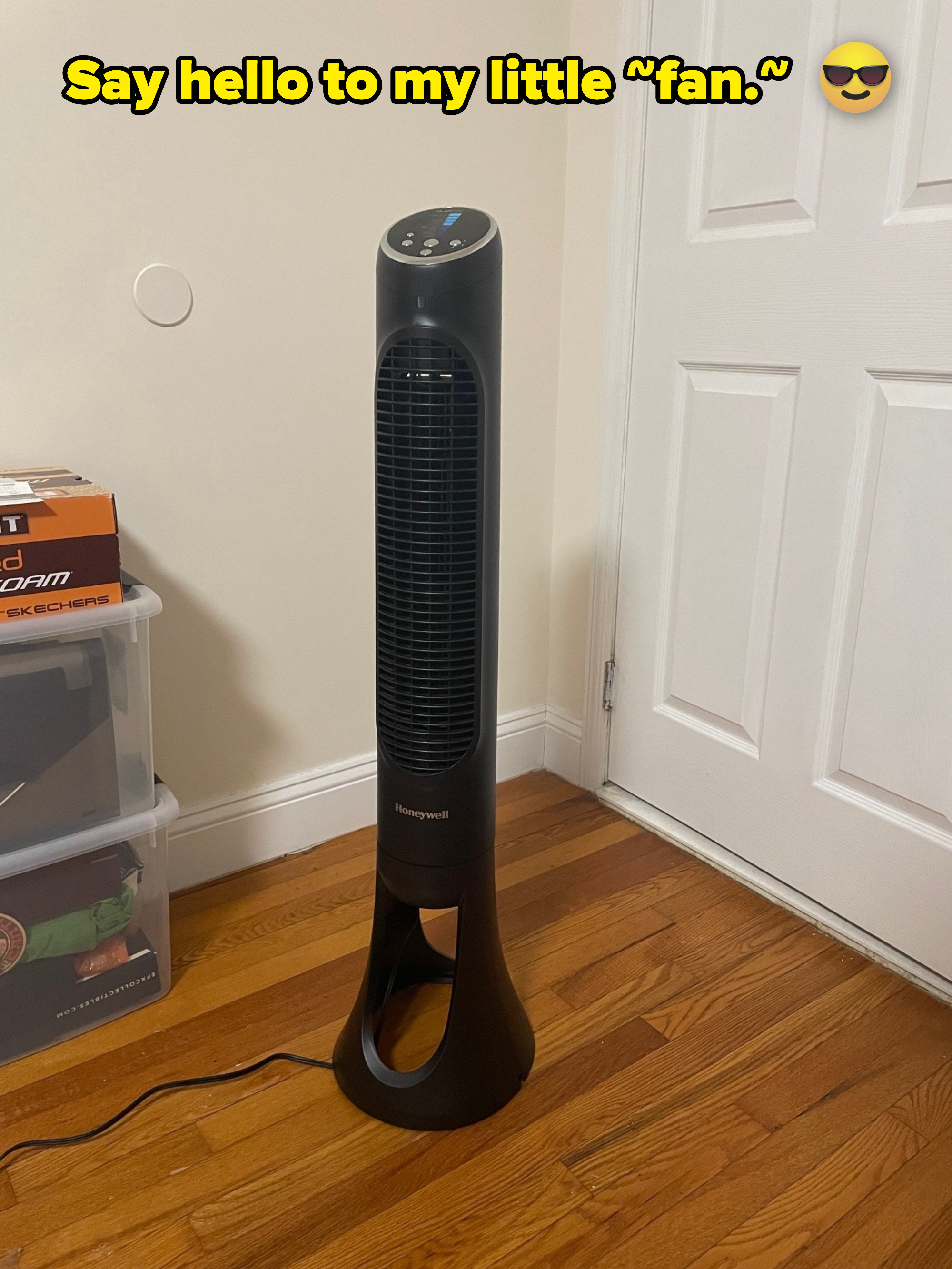
And the results? Probably some of the most deep and consistent sleep I've had in months. I know it doesn't sound like a long time, but for me, receiving about a week's worth of undisruptive rest completely altered my state of mind to the point that I was experiencing a feeling of happiness I haven't felt in a long, long time.
